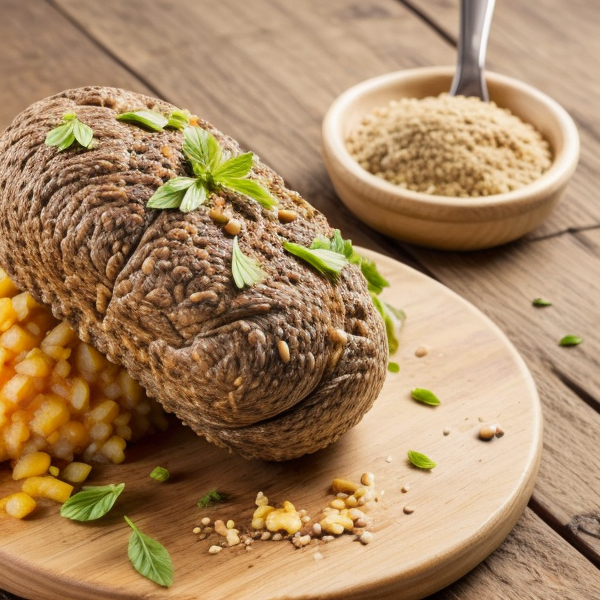Fiber-Rich Foods: A Foundation for Balanced Vegan Nutrition

Title: Fiber-Rich Foods: A Foundation for Balanced Vegan Nutrition
Introduction
As more and more people adopt veganism, there is a growing concern about ensuring they get all the necessary nutrients from their diet. One crucial aspect of vegan nutrition is fiber intake, which plays a vital role in maintaining overall health and wellness. In this article, we will explore why fiber is essential for vegans and provide tips on how to incorporate high-fiber foods into your daily meal plan.
Why Fiber Matters for Vegans
1. Promotes digestive health: Adequate fiber intake helps regulate bowel movements, prevent constipation, and promote regularity. This is especially important for vegans who may rely heavily on processed foods or those low in fiber, as these can lead to digestive issues like bloating, gas, and cramping.
2. Supports heart health: Soluble fiber, found in foods like beans, peas, lentils, oats, and barley, has been shown to lower cholesterol levels and reduce the risk of heart disease. Vegans tend to have higher levels of LDL (bad) cholesterol due to the absence of animal products, so consuming plenty of soluble fiber is essential for maintaining healthy cholesterol levels.
3. Helps manage blood sugar levels: Eating a diet rich in fiber can help slow down the absorption of sugar into the bloodstream, making it easier for individuals with type 2 diabetes or prediabetes to manage their blood glucose levels. Additionally, studies have shown that eating a high-fiber diet can improve insulin sensitivity and reduce the risk of developing type 2 diabetes.
4. Aids in weight management: High-fiber foods are generally low in calories and high in volume, which means they can help you feel full faster and eat less overall. This can be particularly beneficial for vegans who may struggle with weight gain due to overconsumption of processed foods or lack of variety in their diet.
5. Boosts immune function: Dietary fiber feeds the good bacteria in our gut microbiome, which plays an essential role in maintaining a strong immune system. Consuming enough fiber has been linked to reduced inflammation, improved gut barrier function, and enhanced immune response.
6. May reduce the risk of certain cancers: Research suggests that a diet high in fiber may reduce the risk of colorectal cancer, breast cancer, and prostate cancer. This is likely due to the fact that fiber binds to and removes carcinogens from the body, as well as its ability to support healthy gut bacteria and regulate hormone levels.
Tips for Incorporating More Fiber into Your Vegan Diet
1. Start your day with a high-fiber breakfast: Choose whole grain cereals, oatmeal, or a fruit and nut smoothie made with rolled oats, chia seeds, flaxseeds, or hemp hearts.
2. Load up on vegetables and fruits: Make sure to include plenty of non-starchy vegetables and fruits in your meals throughout the day. These are packed with fiber, vitamins, minerals, and antioxidants.
3. Experiment with different types of legumes: Beans, lentils, chickpeas, and other legumes are excellent sources of both soluble and insoluble fiber. Try adding them to soups, salads, curries, stews, and stir-fries.
4. Snack on whole grains and nuts: Keep a stash of whole grain crackers, bread, and cereal bars on hand for quick snacks. Pair them with a small serving of nuts or seeds for added protein and healthy fats.
5. Add fiber-rich ingredients to your cooking: Use bulgur wheat, quinoa, brown rice, and whole wheat pasta instead of refined versions. Replace some of the flour in baked goods with ground flaxseed or chia seed.
6. Drink plenty of water: Fiber absorbs water, so make sure to stay hydrated by drinking at least eight glasses of water per day. This will help prevent constipation and ensure proper digestion.
Conclusion
Incorporating more fiber-rich foods into your vegan diet is essential for maintaining optimal health and wellness. By focusing on whole foods, plant-based proteins, and plenty of fresh produce, you can easily meet your daily fiber needs while enjoying delicious and satisfying meals. Remember to start slowly and listen to your body, and don’t forget to stay hydrated!
